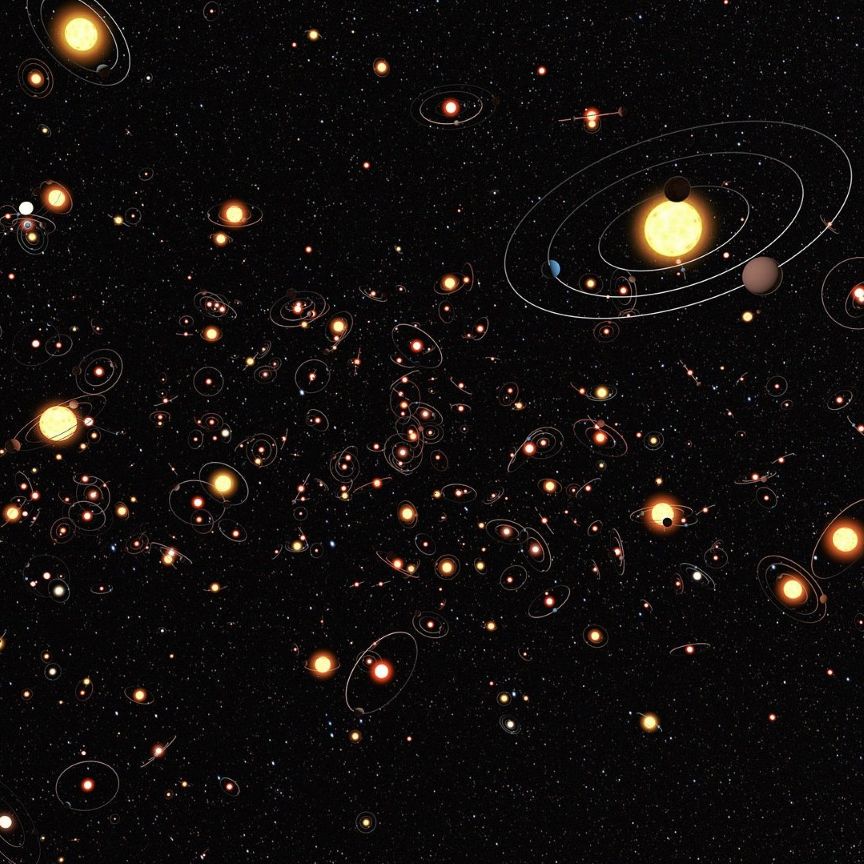
Our researchers investigate Earth’s origins and its evolution into the dynamic, habitable planet it is today. We apply many of the same tools and techniques used to understand the Earth to study meteorites, other planets in our Solar System, and even exoplanets and their atmospheres.
At Cambridge, our research investigates how the Earth and other planets work—from their deep interiors to their surface environments and surrounding atmospheres.
We are interested in Earth’s first 500 million years, from the origin of the Earth’s magnetic field to the cooling and crystallization of Earth’s ancient magma ocean, the formation of Earth’s inner structure and the development of plate tectonics.
Additionally, we are conducting foundational planetary science. We study planetary magnetism, planetesimal differentiation, and sedimentary environments in the case of Mars. We search for Earth-like exoplanets and investigate the ice-covered moons of the Solar System. We also explore which meteorites accreted to form Earth and other planets using isotope tracers.
We are proud to be one of the lead institutions in Cambridge’s Leverhulme Centre for Life in the Universe, a cross-departmental centre bringing together interdisciplinary researchers from Cambridge’s Cavendish Laboratory, Yusuf Hamied Department of Chemistry, Department of Applied Mathematics and Theoretical Physics, Institute of Astronomy, Department of Zoology, Department of History and Philosophy of Science, Faculty of Divinity, and the MRC Laboratory of Molecular Biology to explore the origins of life in our solar system and beyond.
People specializing in this area
| Name | Office phone | Email address |
|---|---|---|
| Professor Marie Edmonds FRS | +44 (0) 1223 333463 | marie.edmonds@esc.cam.ac.uk |
| Professor Richard Harrison | +44 (0) 1223 333475 | rjh40@esc.cam.ac.uk |
| Dr Quentin Kriaa | qk207@cam.ac.uk | |
| Professor John F. Rudge | +44 (0) 1223 765545 | jfr23@cam.ac.uk |
| Dr Nicole Shibley | nicole.shibley@damtp.cam.ac.uk | |
| Professor Oliver Shorttle | +44 (0) 1223 768328 | os258@cam.ac.uk |
| Professor Edward Tipper | +44 (0) 1223 333451 | ett20@cam.ac.uk |
| Prof Helen M. Williams | +44 (0) 1223 333411 | hmw20@cam.ac.uk |
| Professor Andy Woods | +44 (0) 1223 765702 | andy@bpi.cam.ac.uk |
| Name | Office phone | Email address |
|---|---|---|
| Elsa Amsellem | eda27@cam.ac.uk | |
| Dr Sukalpa Chatterjee | +44 (0) 1223 333424 | sc2562@cam.ac.uk |
| Dr Ross Findlay | arwf2@cam.ac.uk | |
| Dr Justin Hu | jh2363@cam.ac.uk | |
| Dr. Rayssa Martins | rm2185@cam.ac.uk | |
| Dr William McMahon | wjm39@cam.ac.uk | |
| Dr Joshua Shea | jjs83@cam.ac.uk | |
| Dr Po-Yen Tung | pyt21@cam.ac.uk |
| Name | Office phone | Email address |
|---|---|---|
| Elsa Amsellem | eda27@cam.ac.uk | |
| Dr Sukalpa Chatterjee | +44 (0) 1223 333424 | sc2562@cam.ac.uk |
| Professor Marie Edmonds FRS | +44 (0) 1223 333463 | marie.edmonds@esc.cam.ac.uk |
| Dr Ross Findlay | arwf2@cam.ac.uk | |
| Professor Richard Harrison | +44 (0) 1223 333475 | rjh40@esc.cam.ac.uk |
| Dr Justin Hu | jh2363@cam.ac.uk | |
| Dr Quentin Kriaa | qk207@cam.ac.uk | |
| Dr. Rayssa Martins | rm2185@cam.ac.uk | |
| Dr William McMahon | wjm39@cam.ac.uk | |
| Professor John F. Rudge | +44 (0) 1223 765545 | jfr23@cam.ac.uk |
| Dr Joshua Shea | jjs83@cam.ac.uk | |
| Dr Nicole Shibley | nicole.shibley@damtp.cam.ac.uk | |
| Professor Oliver Shorttle | +44 (0) 1223 768328 | os258@cam.ac.uk |
| Professor Edward Tipper | +44 (0) 1223 333451 | ett20@cam.ac.uk |
| Dr Po-Yen Tung | pyt21@cam.ac.uk | |
| Prof Helen M. Williams | +44 (0) 1223 333411 | hmw20@cam.ac.uk |
| Professor Andy Woods | +44 (0) 1223 765702 | andy@bpi.cam.ac.uk |
